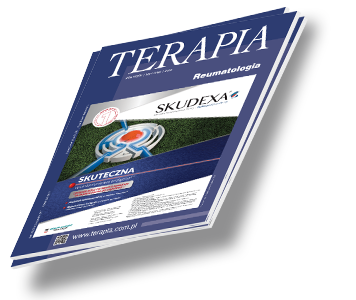Gastroenterologia Terapia 2024, 5 ( 436 ) : 102 - 107
Polihydrat polimetylosiloksanu: enteralny adsorbent o dobrze udokumentowanej aktywności i skuteczności
Polymethylsiloxane polyhydrate: an enteral adsorbent with well-documented activity and efficacy
W dobie przedantybiotykowej, od początku XIX wieku, adsorpcja patogenów i toksyn z przewodu pokarmowego była podstawowym pomysłem na leczenie zakażeń i zatruć przewodu pokarmowego. Jeszcze w chwili obecnej w apteczkach domowych poczesne miejsce zajmuje Carbo medicinalis, czyli węgiel aktywowany (WA) w postaci tabletek 300 mg o lekko słodkim smaku (słodzonych sacharozą), stosowany w ostrych i przedłużających się biegunkach, szczególnie przebiegających ze wzdęciem wynikłym z działania toksyn, a także wzmożonej fermentacji. Jednak ze względu na wyjątkowo nieprzyjemne cechy smakowo-estetyczne i skuteczność zależną od dużej dawki (u dorosłych dawka skuteczna to 8–16 tabletek 3–4 razy na dobę), nie jest już stosowany w leczeniu biegunek.

Zaloguj się i przeczytaj bezpłatnie całą treść artykułu.
Nie masz jeszcze konta dostępowego?
Zarejestruj się bezpłatnie, a otrzymasz:
* dostęp do wszystkich doniesień oraz pełnych tekstów artykułów naukowych w naszej Czytelni,
* prawo do bezpłatnego otrzymywania newslettera "Aktualności TERAPIA" z przeglądem interesujących i przydatnych wiadomości ze świata medycyny oraz systemu ochrony zdrowia w Polsce i na świecie,
* możliwość komentowania bieżących wydarzeń oraz udziału w ciekawych quizach i konkursach.
Zapraszamy serdecznie, dołącz do naszej społeczności.



Dodaj komentarz